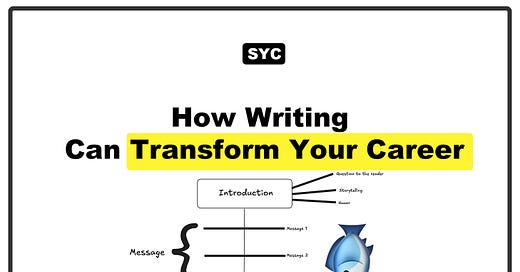✍️ From Tech Docs to Blog Posts: How Writing Can Transform Your Career
Writing has a transformative power, whether for technical documents, side projects, or personal growth. Reflecting on a year of consistent online writing, I'll share insights on how writing helps you.
You probably don’t care about tech influencers telling you about their writing journey.
But you care about improving your writing in your technical documents. Or preparing a presentation at work.
One way or another, we all write. And this post can give you insights to improve it.
Exactly one year ago, I stared at an OKR I set for Q3 2023:
"Code a blog, deploy it, and start writing."
But the reality? I hadn’t done a thing. So, I made a snap decision: I created a Substack account and hit publish that very weekend. And it changed everythin
❓ Why should you care about your writing
1️⃣ Writing is an important skill for learning
Having to write online is a personal forcing function to learn. Without quality inputs, you don’t have quality outputs.
Even without sharing online, when I read books or take courses I take notes.
Before writing online, my notes were a dump of information. They wer…




